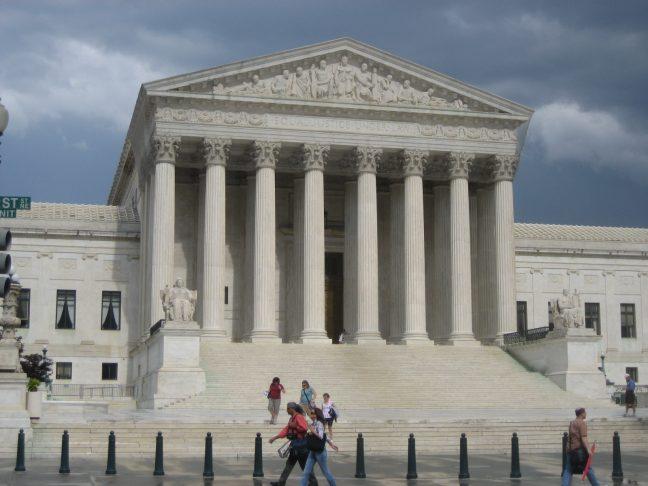Amid a flurry of criticism for President Donald Trump appointments in his first weeks in office, one University of Wisconsin professor said U.S. Supreme Court justice nominee Neil Gorsuch may be a choice both parties could support.
President Donald Trump announced last week in a news conference his nominee for the Supreme Court: 49-year-old Neil Gorsuch.
Gorsuch is currently a judge on the 10th Circuit Court of Appeals. Experts, including Howard Schweber, a UW political science professor, said Gorsuch is a “natural successor” to the Judge Antonin Scalia, who died last year leaving an empty seat in the court.
Schweber said Gorsuch is comparable to Scalia — who famously used candid language in his decisions — in his views, but even more articulate.
“In his latter years, Scalia didn’t persuade anyone to do anything,” Schweber said. “His writing was abrasive and extreme, whereas Gorsuch is a much calmer and more gentle writer who will have success in persuading other justices to join his opinions.”
But Schweber raised the question of what implications may accompany a young conservative’s presence on the court.
Republicans are looking forward to the new justice, Schweber said. They appreciated his milder temper and said Trump’s choice is “noncontroversial.”
Schweber said Gorsuch’s replacement is less of a monumental shift than Justices Anthony Kennedy or Stephen Breyer.
“There is maintenance in status quo,” Schweber said. “Although we don’t really know Gorsuch’s position on abortion and guns, I would not expect him to take a radical position on either case.”
While Schweber said he does not anticipate Gorsuch supporting a radical change in doctorate, he predicts he will be more apt to giving power to the states on issues like abortion.
Given the Trump administration’s recent controversial cabinet appointments, Schweber said the court could see a change if Gorsuch remains less differential to administrative agencies.
Schweber said Gorsuch’s history of showing hostility toward union rights raises concerns about the rollback of civil rights.
“Gorsuch shares Scalia’s skepticism on attempts of government to enforce civil rights or what the government can do to protect the right,” Schweber said.
U.S. Sen. Tammy Baldwin voiced her concern of his “deeply troubling record” with regard to progressive legislation in a statement.
The Wisconsin Democrat particularly questioned Gorsuch’s rulings on disabled students, workers and women’s reproductive health care.
“With this Supreme Court nomination, President Trump has made it clear he has no interest in being a President for all Americans, and that he is intent on creating more division in our country,” Baldwin said.
On the other hand, U.S. Sen. Ron Johnson, R-Oshkosh, said in a statement he looks forward to meeting Gorsuch and supporting his nomination.
While Baldwin is concerned concerns for Gorsuch’s track record on civil rights, Johnson said the nominee has the integrity to apply the law as a judge, not a “superlegislator.”
Regardless of some disagreements, Schweber said Gorsuch is a “qualified, extremely mainstream and uncontroversial choice” — someone both Democrats and Republicans can agree with.


